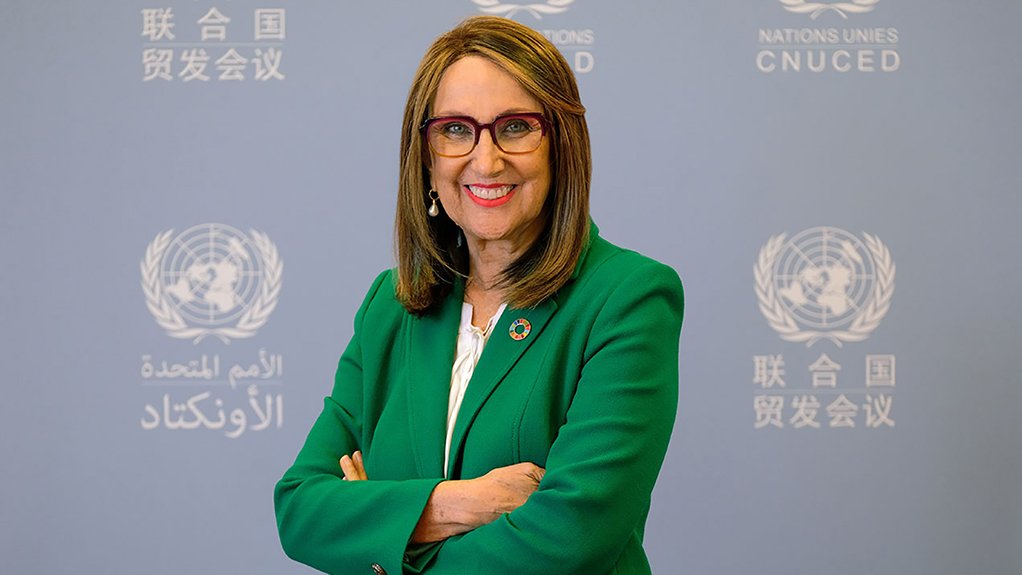UNTD calls for more fiscal flexibility to help developing countries reach SDGs
While the global economic slowdown in 2023 was less severe than expected, intergovernmental organisation United Nations Trade and Development (UNTD) has warned that a further deceleration in global economic growth can be expected this year.
UNTD secretary-general Rebeca Grynspan has called for concerted multilateral action and a balanced policy mix to safeguard the global economy amid shifting trade patterns, soaring debt and mounting costs of climate change, particularly in developing countries.
Market expectations for lower interest rates this year raise hope for mitigating the pressure on private and public budgets worldwide; however, monetary policy alone cannot provide solutions to the key global challenges linked to sovereign debt levels, growing inequalities and climate change.
To restore trust in the multilateral system and prevent further fracture, Grynspan recommends coordinated multilateral efforts to address the asymmetries of international trade and market concentration. She adds that borrowing countries need more fiscal flexibility to reach the Sustainable Development Goals (SDGs).
She says this can only be achieved through an inclusive reform of the global financial safety net.
Most advanced economies' central banks have aggressively raised interest rates since early 2022 to combat inflation. However, this approach did not fully consider supply chain issues from Covid-19 and increased market dominance, leading to higher prices and profits.
In 2023, despite stable employment, inflation decreased, indicating that supply-related issues, not just demand, contributed to earlier inflation.
UNTD also finds no current evidence of a feared cycle where rising wages drive up prices, with real wages still below pre-pandemic levels and lagging behind productivity growth.
TRADE THREATS
UNTD says rising protectionism, disrupted maritime routes, owing to geopolitical tensions, and climate change are threats to global trade.
In 2023, the global economy grew by 2.7%, but international trade in goods decreased by 1%. Although there has been some recovery this year, it is unlikely that merchandise trade will be a significant driver of growth this year.
Global domestic product growth is expected to slow to 2.6% this year.
Global maritime trade routes, which are crucial for the world’s commerce, are facing increasing challenges.
Most recently, escalating attacks on ships in the Red Sea since November 2023 have been compounding already existing disruptions in the Black Sea caused by the war in Ukraine.
Additionally, climate-induced drought is affecting trade through the Panama Canal.
Despite some improvement, subdued growth is expected in global merchandise trade this year. Prospects for services trade are relatively better.
UNTD warns that rising protectionism, trade tensions and geopolitical uncertainty are likely to continue for the foreseeable future, hampering not only economies but international trade.
DEBT ARCHITECTURE
Many developing countries are grappling with significant debt and development challenges at a time of declining aid flows.
In 2022, nearly half of the surveyed developing nations for which data is available, experienced negative net transfers on public and publicly guaranteed debt.
Outflows to external creditors, including bilateral, multilateral and private lenders, surpassed incoming disbursements by almost $50-billion last year, an amount equivalent to the gross domestic product of several countries combined.
Further, private creditors in particular showed less interest in lending to developing countries.
Between 2021 and 2022, net transfers on public and publicly guaranteed debt from private creditors switched from an inflow of over $40-billion to an outflow of nearly $90-billion, exposing flaws in the current debt and financial architecture.
The debt crisis is draining valuable public resources in developing countries, UNTD states. The organisation adds that while some developing countries have recorded strong bond issuances in the first months of 2024, uneven and costly market access persists.
The current debt crisis is rooted in structural issues, arising from sluggish economic growth, widespread tax avoidance, commodity dependence, and the cost of climate change.
Grynspan reiterates the call for a stronger global financial safety net and the establishment of efficient multilateral frameworks for resolving sovereign debt issues.
FOOD PRICES
Food prices continue to rise in developing countries despite having declined globally in line with the commodity cycle.
UNTD finds that several factors are contributing to the constant rise in food prices in some countries, including significant concentration within global food value chains, stricter standards imposed by importing nations on food products and the growing influence of finance on commodity markets.
If current market trends persist, 600-milion people are estimated to be chronically undernourished by 2030.
UNTD concludes that food security persists as an acute concern in developing countries, which needs multilateral solutions.
Article Enquiry
Email Article
Save Article
Feedback
To advertise email advertising@creamermedia.co.za or click here
Press Office
Announcements
What's On
Subscribe to improve your user experience...
Option 1 (equivalent of R125 a month):
Receive a weekly copy of Creamer Media's Engineering News & Mining Weekly magazine
(print copy for those in South Africa and e-magazine for those outside of South Africa)
Receive daily email newsletters
Access to full search results
Access archive of magazine back copies
Access to Projects in Progress
Access to ONE Research Report of your choice in PDF format
Option 2 (equivalent of R375 a month):
All benefits from Option 1
PLUS
Access to Creamer Media's Research Channel Africa for ALL Research Reports, in PDF format, on various industrial and mining sectors
including Electricity; Water; Energy Transition; Hydrogen; Roads, Rail and Ports; Coal; Gold; Platinum; Battery Metals; etc.
Already a subscriber?
Forgotten your password?
Receive weekly copy of Creamer Media's Engineering News & Mining Weekly magazine (print copy for those in South Africa and e-magazine for those outside of South Africa)
➕
Recieve daily email newsletters
➕
Access to full search results
➕
Access archive of magazine back copies
➕
Access to Projects in Progress
➕
Access to ONE Research Report of your choice in PDF format
RESEARCH CHANNEL AFRICA
R4500 (equivalent of R375 a month)
SUBSCRIBEAll benefits from Option 1
➕
Access to Creamer Media's Research Channel Africa for ALL Research Reports on various industrial and mining sectors, in PDF format, including on:
Electricity
➕
Water
➕
Energy Transition
➕
Hydrogen
➕
Roads, Rail and Ports
➕
Coal
➕
Gold
➕
Platinum
➕
Battery Metals
➕
etc.
Receive all benefits from Option 1 or Option 2 delivered to numerous people at your company
➕
Multiple User names and Passwords for simultaneous log-ins
➕
Intranet integration access to all in your organisation




















